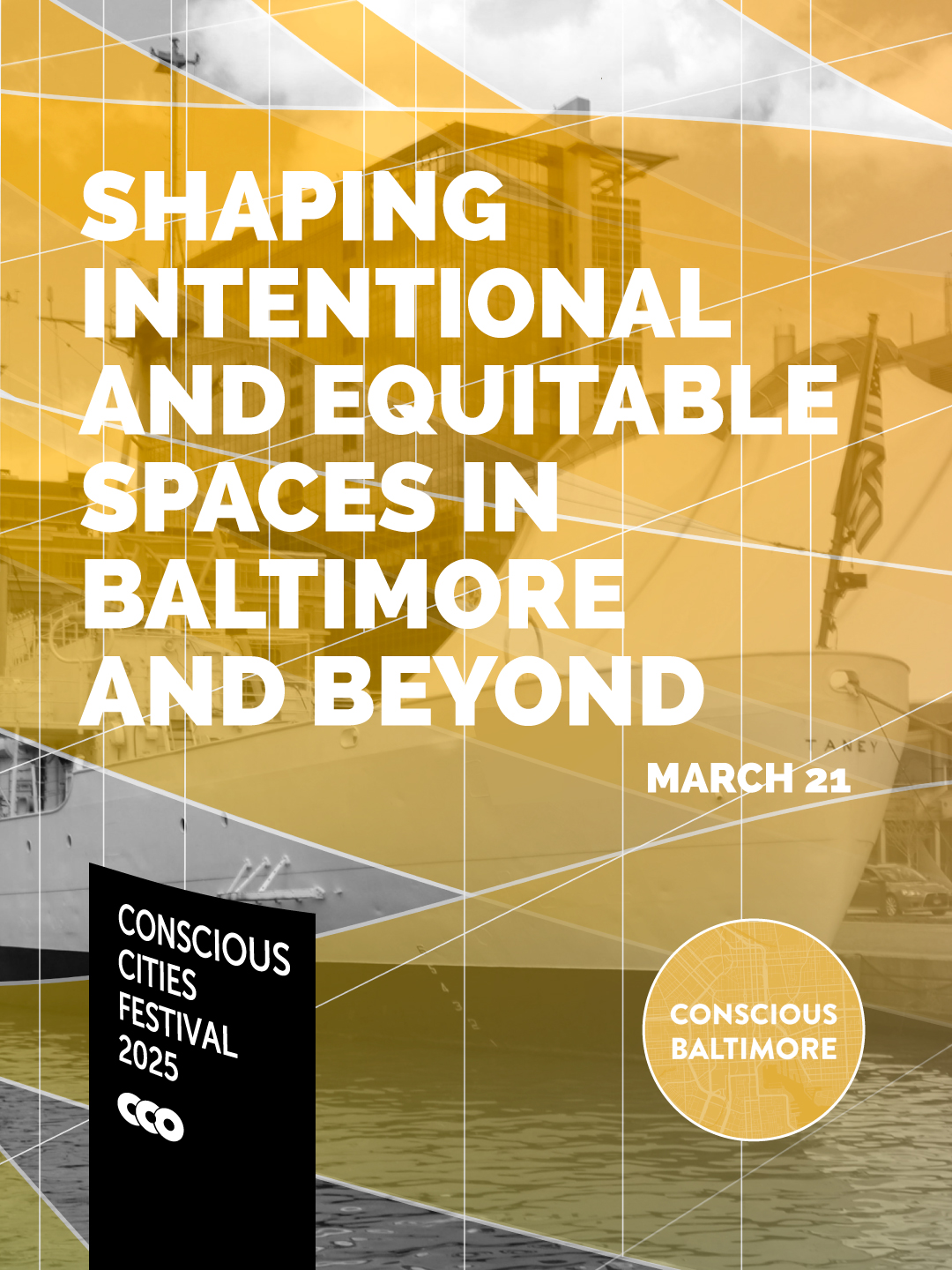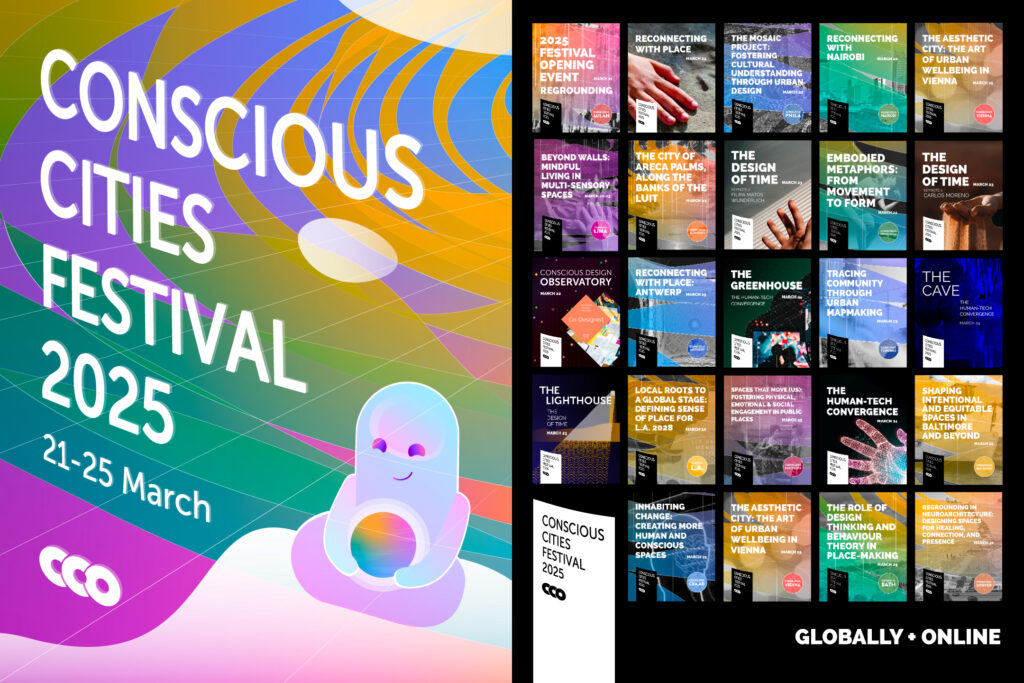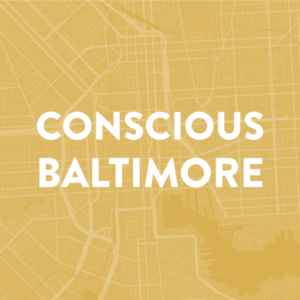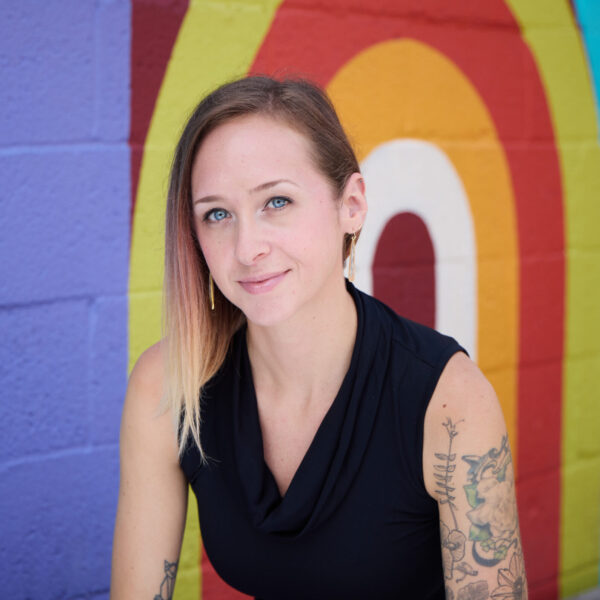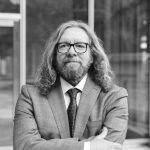During the Conscious Cities Festival–where designers, researchers, technologists, decision makers, and local communities converge to explore the intricate relationship between the built environment and human flourishing–the Conscious Baltimore chapter and the International Arts + Mind Lab are working together to facilitate an enriching and compelling conversation that will aim to answer the question:
How can we shape the built environment with greater intention and how might that look in Baltimore, Maryland?
On March 21, we will bring a diverse group of researchers and practitioners together to join this conversation. Experts working nationally will speak alongside local leaders about efforts to consciously shape places that enrich lives and help people flourish. Through this event, we will aim to understand the importance of intentional, meaningful, and conscious design; illustrate how community builders are applying these approaches to their practice; and celebrate the opportunities for cultivating just and welcoming communities with intentional design.
Speakers:
COLIN ELLARD |Professor of Psychology and Director of the Urban Realities Laboratory, University of Waterloo
AVA RICHARDSON | Director of Sustainability, Baltimore Office of Sustainability
HEIDI THOMAS | Principal, Creative Director + Worker Owner of EnviroCollab
IN-PERSON ATTENDEES:
Enoch Pratt Free Library | 400 Cathedral Street Baltimore, MD 21201
2ND Floor
VIRTUAL ATTENDEES:
Microsoft Teams | Join the meeting now
Meeting ID: 253 244 803 411
Passcode: J7xk6Kp2

